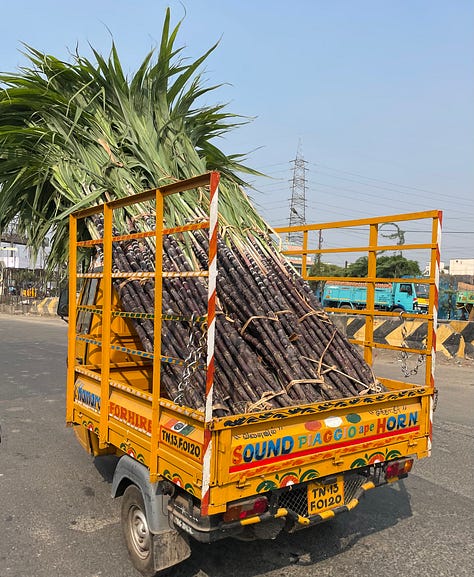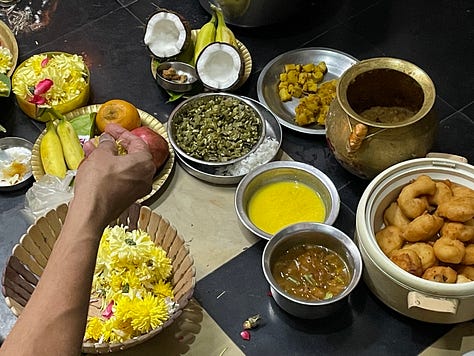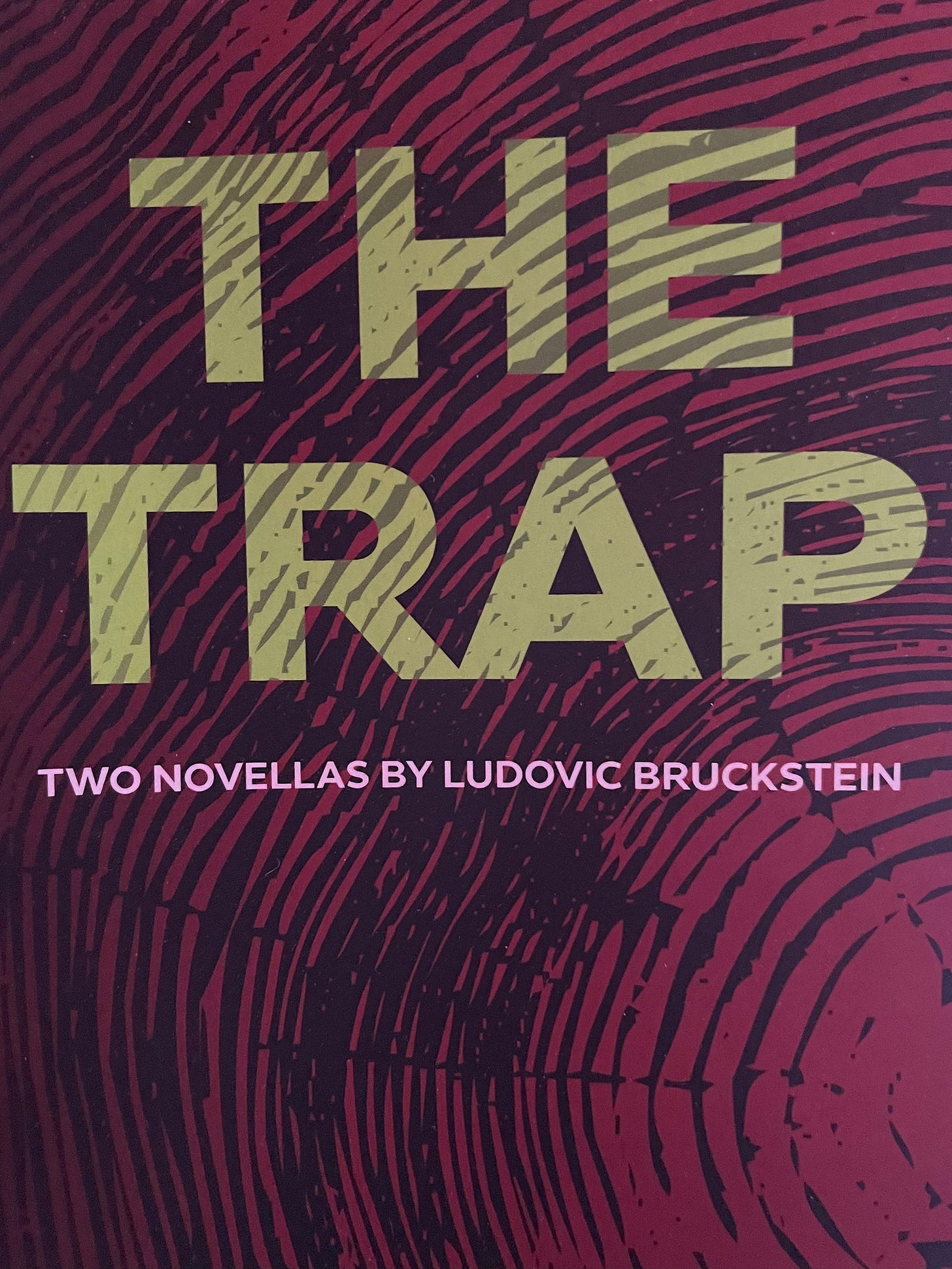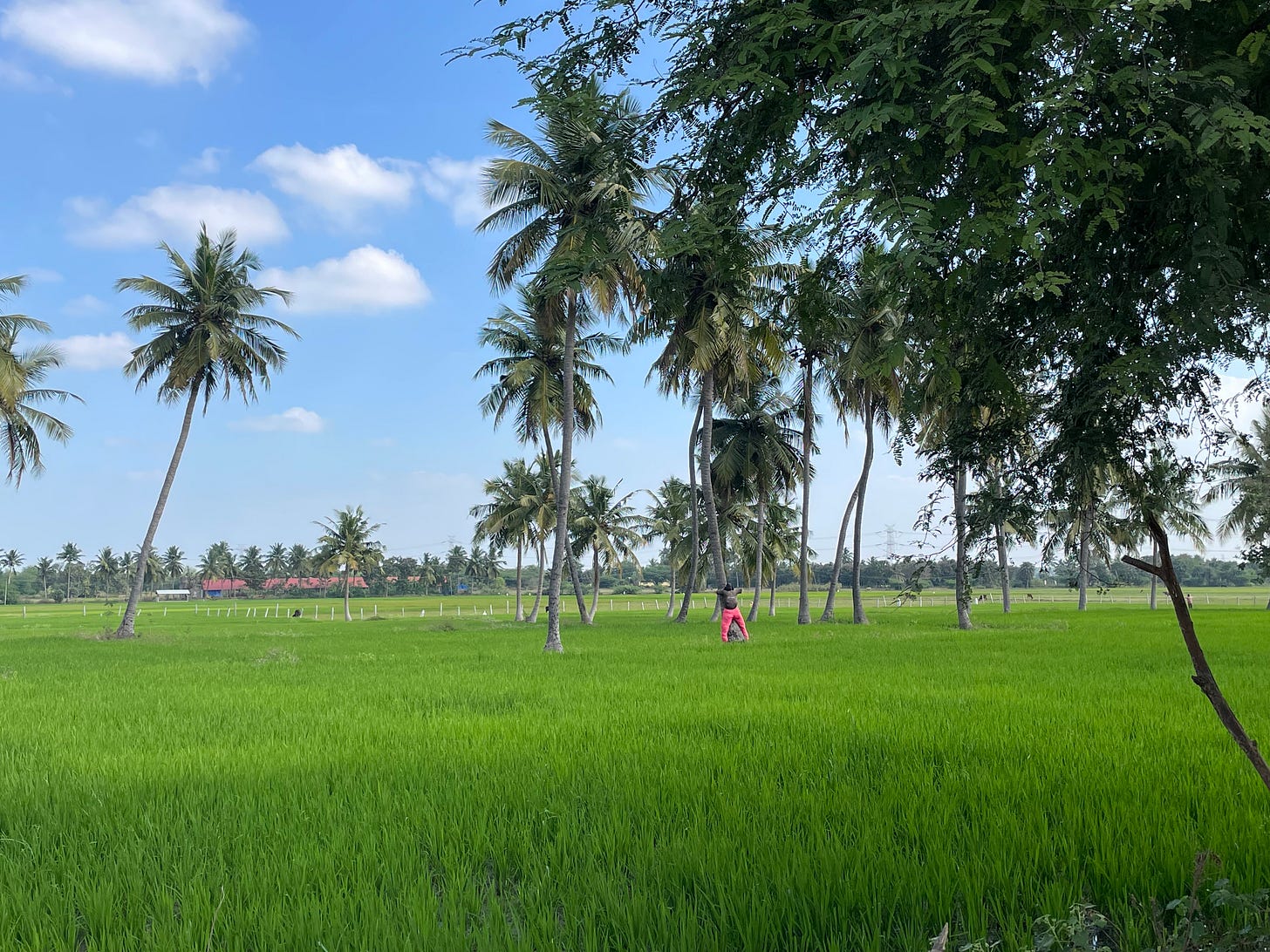WHEN READING IS IMPOSSIBLE
When reading seemed impossible, I chose a novella by Ludovic Bruckstein which tells a timeless story about prejudice that shatters communities.
A few months ago, I wrote about a meeting with Freddy Bruckstein in Israel’s Haifa. What was a gift of two of his father’s books introduced me to a terrific writer—Ludovic Bruckstein—who passed away too early, by the age of 68, following a life of both unexpected hardship and stellar success. I carried the book titled The Trap to India so that I could read it during my travels. Alas, what no one told me was how consistent reading is almost impossible when the days and weeks are unpredictable.
A few days ago, we arrived at my husband’s home in Vellore in Tamil Nadu; we celebrated Pongal, the 3-day harvest festival that signals the beginning of the year in many parts of India. Without the sun to give us warmth and shade, how do our crops grow? Rather, how do we sustain our human form without the constant assurance of the sun? Hence the prayers offered at this harvest time always extol the warmth and might of the sun. In the Vedic texts, the deity referred to as “Vishnu” is none other than Surya (or the Sun god) and thus during Pongal in South India, we celebrate it with a Surya Narayana Puja (prayer).



Of course, as during all festivals around the globe, Pongal, too, is more about eating than about praying; naturally, my reading and processing has been erratic. I chose to read Bruckstein’s novella this week because it was both short and powerful. Don’t miss my previous post about Bruckstein’s work centered around a poignant collection of stories about the holocaust.
In The Trap, we meet a young Jewish man named Ernst in the town called Sighet where Bruckstein sets his stories. One evening in 1944, just before the Sabbath meal, when Ernst walks past the Palace of Culture, he is rounded up, along with several Jewish neighbors. The men are all made to stand for hours at attention without being told why they have been detained.
“In that moment of surprise and confusion, Ernst did not realize that with that curt, cutting shout, that ‘Halt!’ that gesture inviting him inside the tall vaulted entrance of that Palace of Culture, the war had finally arrived in that quiet, peaceful little town hidden away in a valley of the Maramures Mountains.”
Hours later, the Jewish men discover they are there only to do the hard labor of unloading beds for Nazi-commandeered billets. Ernst is singled out for more humiliation. He was the only one among the lot to have the courage to ask why they were detained for so long without any explanation whatsoever. As punishment, Ernst is humiliated by the soldier. He is made to pick up straw from the mattresses bare-handed. Later, after he is released, he vows to avoid further humiliation by taking to the mountains with his knapsack and binoculars. From high up there, he begins to watch the round-up of the families into a makeshift ghetto, and, eventually, their deportation to somewhere. Little by little this peaceful town of Sighet begins to change. No one could take the other for granted.
“It was a small town and everybody knew everybody else, and for a fact, everybody knew who was a Jew. And who was a Romanian. And who was a Hungarian. And who was a Ukranian. And who was a Zipser German. And who was a Gypsy. Nobody tried to hide what he was.”
In a stunning passage about how people reduce themselves to one thing and begin to be labeled by that, Bruckstein suggests how people are much more than members of a religious sect or a profession. We see Ernst telling a friend (who is a lawyer of German descent) that the marking of people is unacceptable. He imagines a fantastical world in which everyone is put into a box.
“And why shouldn’t people also be marked according to their religion? They should wear armbands, since armbands were then very fashionable, each with a sign or symbol. Christians, a cross. Jews, the Star of David. Atheists, nothing. Which is to say, a zero…Maybe people should also be marked according to their occupation? Barbers would have a B, for example, Merchants an M, teachers a T, doctors a D, pickpockets a PP, and so on. That way, we would know who we were dealing with at one glance. Before long there would even be a demand for armbands that simply said “Human”—how many people would wear such an armband?
Just the idea of this kind of othering is hilarious. These words are mordacious. Yet, this story set at the time of World War II is as heartbreaking as it is topical today when the people who once lived in harmony while celebrating their differences are now alienated by precisely those differences. We see it happening around the world, this balkanization of places and minds, and in The Trap is heartrending—this breakdown in empathy and the draining of innocence.
Sighet, which was once a bucolic mountain town where people went about their lives and helped one another, has now been turned inside out. It’s unclear who can even be trusted. Innocent people are labeled as spies. They’re being executed even though they’ve done no wrong. When, finally, Ernst judges that it’s now safe to descend from the hills and emerges one day from the mountains, he does return to the now-sealed family house.
His luck runs out again and it seems he is back where he was before the war ended. Once again he is denied agency and individuality. Ernst is now rounded up—this time by a Russian officer who needs to make up his quota of prisoners—to be packed off to labor camps in Siberia.


